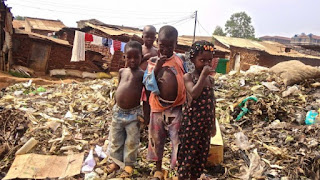WHY MOST OF THE AFRICAN NATIONS ARE POOR?
WHY MOST OF THE AFRICAN NATIONS ARE POOR?
Reasons for poverty in Africa
- Mismanagement of land- Despite large amounts of arable land south of the Sahara Desert, small, individual land holdings are rare. In many nations, the land is subject to tribal ownership and in others, most of the land is often in the hands of descendants of European settlers of the late 19th and early 20th centuries.
- Misused money- Over $500 billion (U.S.) has been sent to African nations in the form of direct aid. The consensus is that the money has had a little long-term effect.In addition, most African nations have owed substantial sums of money. However, a large percentage of the money was either invested in weapons (money that was spent back in developed nations, and provided little or no benefit to the native population) or was directly misappropriated by corrupt governments.
- Human resources- Education is also a major problem, even in wealthier nations. Illiteracy rates are high although a good proportion of Africans speak at least two languages and a number speak three (generally their native language, a neighbouring or trade language, and a European language). higher education is largely unheard.
- Disease- The greatest mortality in Africa arises from preventable water-borne diseases, which affect infants and young children greater than any other group. The principal cause of these diseases is the regional water crisis, or lack of safe drinking water primarily stemming from mixing sewage and drinking water supplies.Much attention has been given to the prevalence of AIDS in Africa. 3,000 Africans die each day of AIDS and an additional 11,000 are infected. Less than one percent are actually treated. However, even with the widespread prevalence of AIDS (where infection rates can approach 30% among the sexually active population), and fatal infections such as the Ebola virus, other diseases are far more problematic.
- Poor infrastructure-Colonialism concentrated on connecting the coast with internal territories. As such, nearly none of Africa's roads and railways connect with each other in any meaningful way. Connecting Africa's extensive railway network has recently become a priority for African nations outside of southwest Africa, which has an integrated network. Clean potable water is rare in most of Africa (even those parts outside the sub-Saharan region) despite the fact that the continent is crossed by several major rivers and contains some of the largest freshwater lakes in the world.
- Conflict- Despite other hot spots for war, Africa consistently remains among the top places for ongoing conflicts, consisting of both long-standing civil wars (e.g. Somalia, Democratic Republic of the Congo), ethnic conflicts that even resulted in genocides (e.g. the Rwandan genocide) and conflicts between countries.
- Climate change.
- SO WHAT IS THE SOLUTION? SOLUTION IS EDUCATION, EDUCATION, AND EDUCATION. The more people will be educated, the more they will find homegrown solutions of their own problems
- SOURCE-SUMMARIZED FROM WIKIPEDIA



Comments
Post a Comment